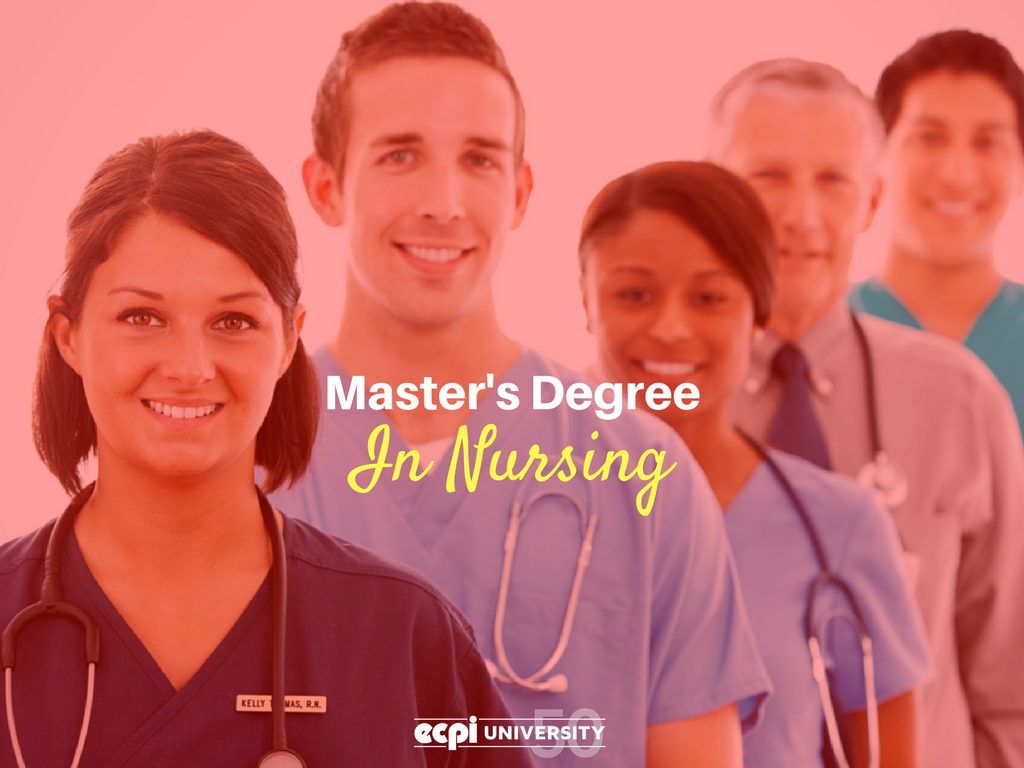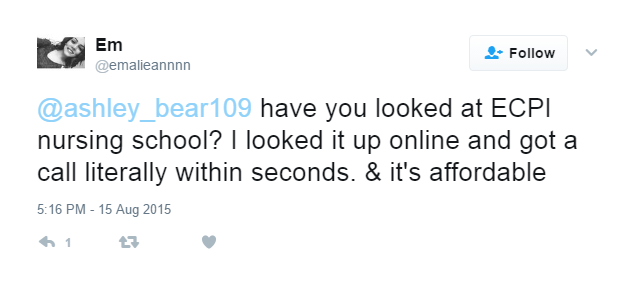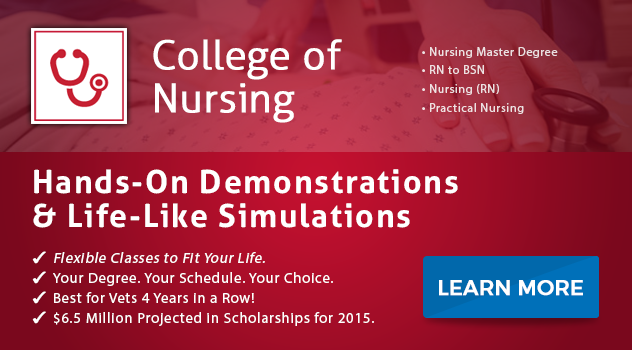What can You do with a Master's Degree in Nursing (MSN)?
Whether you aspire to be a nurse or are already working in the field, you should be aware that your career horizon has expanded considerably in recent years. But it all depends on the level of education you attain. Although you may enjoy today helping others regain their health using hands-on skills, in the future you may want to take a new turn in your career. That's where earning a graduate degree, such as the Masters of Science in Nursing, can make the difference.
Educational Goals in Nursing
Registered nurses, or RNs, have many career paths open to them, including working in hospitals, clinics, educational facilities, occupational medicine, and many other settings. Students become RNs by obtaining their associates degrees in two-year programs, although some can attain this degree in an accelerated program in 18 months. To be a registered nurse, the aspirant must also pass a certification exam.
The next educational step is to obtain a Bachelor of Science Degree in Nursing. Program completion times will vary, depending on whether the student is full or part-time and what kind of program they apply for. Bachelor's degrees are becoming increasingly common goals for nurses, as they can lead to higher-level jobs and better salaries.
But what about moving on to a master's degree in nursing? Is there real value in putting in the extra time and expense it will take to earn this level of educational attainment? A master's degree will obviously require an additional commitment as you pursue coursework in more specialized topics. But the rewards could be well worth the effort.
Why Pursue a Master's of Science Degree in Nursing?
Today nurses are going on to obtain master's degrees in increasing numbers. Here are just a few of the reasons why.
- More job prospects. As you obtain more education, you can specialize in various fields, such as mental health, gerontology, pediatrics, and many others, leading to higher-level jobs in the nursing profession.
- Better pay. Obviously, as you move to ever more responsible jobs in your profession, you will likely earn a better salary.
- Meeting licensing requirements. It is probable that licensing laws will become more stringent for healthcare professionals in the coming years. You will be ahead of the game if you plan early on to obtain your graduate-level degree.
- Entry to the education field. Many experienced nurses find themselves drawn to be nurse educators. Not only does the idea of mentoring and teaching future nurses appeal to them, but they also find teaching and sharing their professional experience to be a satisfactory career path in mid-career.
- Allows for an extended career. Nursing can be physically demanding, with long hours of standing and other strenuous physical activity. Those planning to work for extended years should be planning to reach ever-higher levels of educational attainment such as an MSN so they can move into management or education and thus have longer careers.
- Desire to move toward a doctorate degree. Not everyone in nursing will have the goal of earning a Ph.D., but for those who wish to reach the highest level of attainment available in the nursing field, they will need an MSN as a step on the way to attaining a Ph.D.
Educational Paths for MSNs
There are many career paths available to prospective MSN candidates, but two that might appeal to you are Health Systems Leadership and Nursing Education.
An MSN in Health Systems Leadership, you would find yourself learning how to become a leader as well as a nurse. Professionals in this field would be expected to advance healthcare safety, efficiency, best practices, and quality. Leaders at this level would also be expected to apply the foundations of what they learned when earning their MSNs, including statistics, healthcare technology, and systems management to case studies, classroom discussion, and actual leadership situations.
Nursing educators are often inspired to share their love of nursing with others. They want to advance the profession and make a difference in the lives of students who aspire to improve the health and recovery of others. Nursing educators should obtain a background not only in healthcare, but also in statistics, healthcare technology, teaching, online learning strategies, and curriculum planning and development.
Could you see yourself working as a Nurse Educator or Health Systems Leader? If you’re interested in earning your Master of Science in Nursing degree, consider ECPI University for the education you need. With accelerated classes and a year-round schedule you could find yourself earning your degree in as little as 15 months. For more information, contact a helpful admissions counselor today.
It could be the Best Decision You Ever Make!
DISCLAIMER – ECPI University makes no claim, warranty, or guarantee as to actual employability or earning potential to current, past or future students or graduates of any educational program we offer. The ECPI University website is published for informational purposes only. Every effort is made to ensure the accuracy of information contained on the ECPI.edu domain; however, no warranty of accuracy is made. No contractual rights, either expressed or implied, are created by its content.
For more information about ECPI University or any of our programs click here: http://www.ecpi.edu/ or http://ow.ly/Ca1ya.





